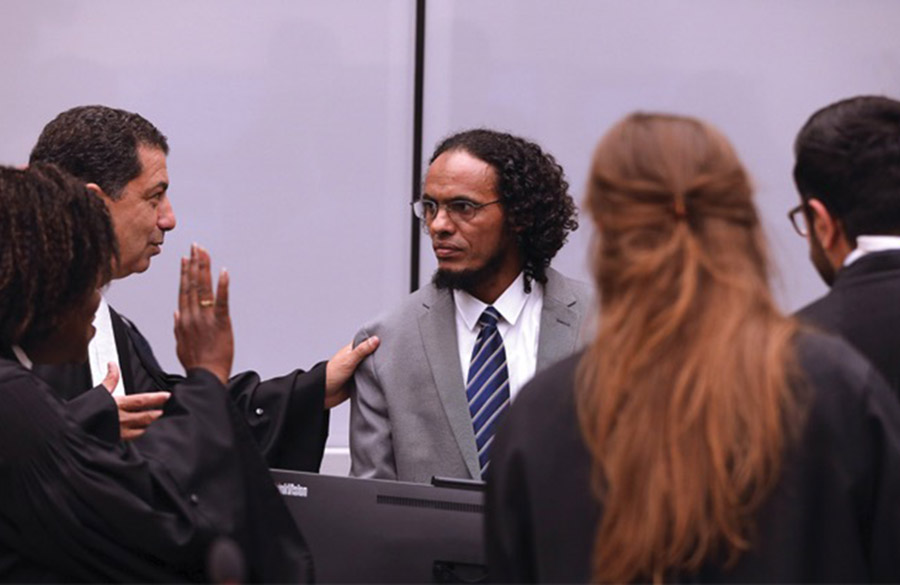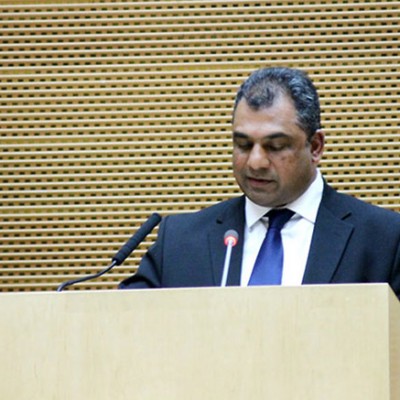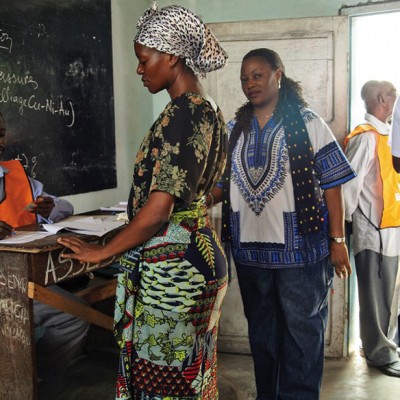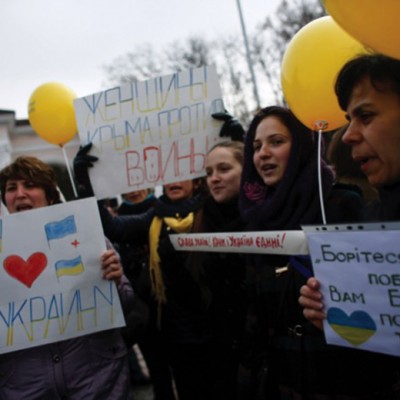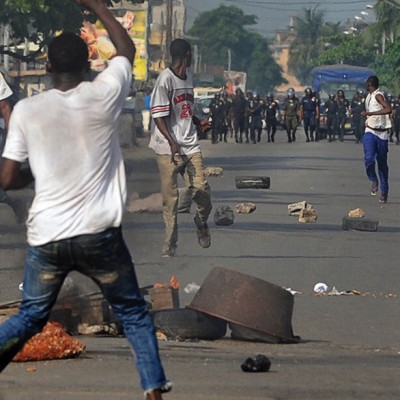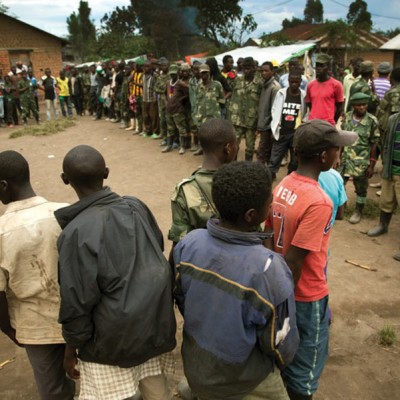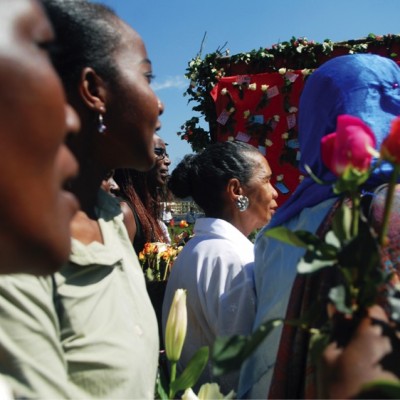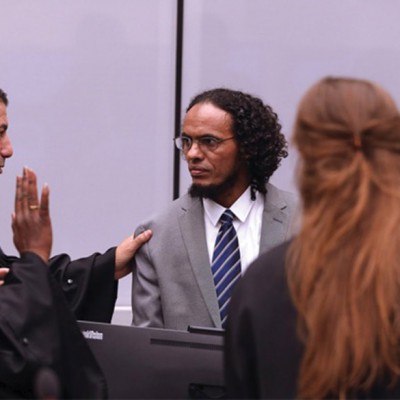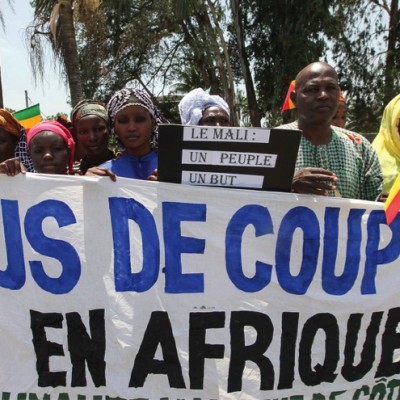International humanitarian law and international criminal law are usually regarded as tools with the primary aim of protecting people against gross violations of their rights. This is not false. However, these two branches of public international law, in the context of international or non-international conflicts, also protect objects, especially those that have a certain value for people who are the first victims of war. It is in this regard that on 27 September 2016, the International Criminal Court (ICC) delivered a landmark decision in the case of The Prosecutor v. Ahmad Al Faqi Al Mahdi.1 This case appeared before the ICC following the referral to the Prosecutor of the Court in 2012 by the Government of Mali. In January 2012, a conflict of non-international character occurred in the territory of Mali.2 Following this, different armed groups, including Ansar Dine and Al-Qaeda in the Islamic Maghreb (AQIM), took control of the northern part of the country – namely Timbuktu. These armed groups imposed their religious and political edicts on the territory of Timbuktu and its people. Al Mahdi, who was the head of the morality brigade of these groups, was charged with “regulating the morality of the people of Timbuktu, and of preventing, suppressing and repressing anything perceived by the occupiers to constitute a visible vice”.3
It was in this capacity that Al Mahdi, acting on the instructions of the leaders of the two armed groups, launched a widespread attack on the mausoleums of saints and the mosques of Timbuktu. These sites are an integral part of the religious life of Timbuktu’s inhabitants. They constitute a common heritage for the community and are places of prayer or pilgrimage. Some of these sites, which were not military objectives, have protected United Nations Educational, Scientific and Cultural Organisation (UNESCO) World Heritage site status. After initially being reluctant to destroy these sites, Al Mahdi later actively participated in a common plan with other people to attack the sites. Based on this, the single judge of the ICC Pre-Trial Chamber I issued a warrant of arrest against Al Mahdi for the crime of attacking protected objects under article 8(2)(e)(iv).. Al Mahdi was then arrested and transferred to The Hague, and his first appearance took place on 30 September 2015. In February 2016, the parties reached a plea agreement in relation to the charge, and Al Mahdi indicated to the prosecution that he accepted responsibility for the crime and provided a detailed account of his actions. Less than one year later, on 27 September 2016, thanks to this plea agreement, a judgment was delivered in the case, sentencing Al Mahdi to nine years’ imprisonment. This case offers the opportunity to discuss the plea agreement as a useful tool of international criminal justice.
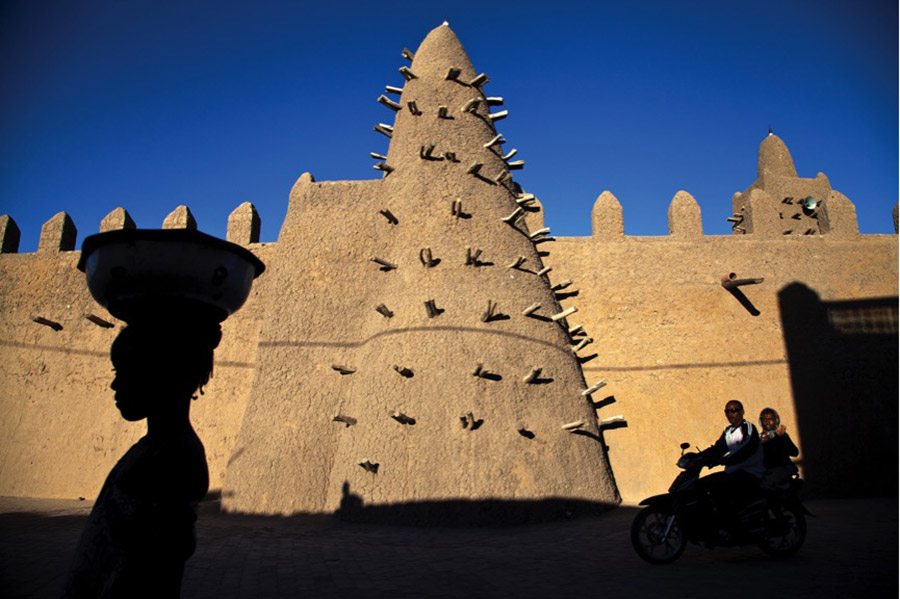
holy public places), which earned Timbuktu the designation of World Heritage Site by the United Nations Educational,
Scientific and Cultural Organisation (UNESCO). (UN PHOTO/MARCO DORMINO)
Plea Agreement: A Useful Tool of International Criminal Justice
Indisputably, it is thanks to the plea agreement reached between the parties in the Al Mahdi case that a judgment was delivered so quickly. It took only one year from the accused being arrested and transferred to The Hague on 26 September 2015 to his final judgment on 27 September 2016. This is far from the eight years that the case against Thomas Lubanga4 took to be settled. The Lubanga case took so long because the prosecution had to conduct long and time-wasting investigations to collect the evidence used to prove to the court, beyond reasonable doubt, that the accused had committed the crime for which he was charged. In addition, the debates between the parties were very intense, since the accused did not admit his responsibility for the crime for which he was charged.
A plea agreement being reached by the parties is a useful tool, since it saves time. The ICC admitted the importance of this tool when it declared that the admission of guilt by the accused and the subsequent agreement reached with the prosecution helped to “substantially speed up the proceedings… This admission of guilt undoubtedly contributed to the rapid resolution of this case, thus saving the Court’s time and resources and relieving witnesses and victims of what can be a stressful burden of giving evidence in Court.”5
However, it should be understood that even when an agreement is reached by the parties, it is nevertheless the duty of the court to establish the truth by making sure that the admission of guilt by the accused satisfies some basic conditions. First and foremost, the plea agreement must be corroborated by the facts of the case. It means that even though a plea agreement has been reached, the court has the duty to ensure that the agreement is substantiated by the case facts. If not, the court has to dismiss it and ask the prosecutor to conduct proper investigations to establish the truth. The International Criminal Tribunal for Rwanda (ICTR) held this view firmly in the case of Jean Kambanda.6 In the Al Mahdi case, this requirement was properly satisfied and the court noted that Al Mahdi, in accepting his responsibility, provided a detailed account of his actions, thereby facilitating the chamber’s establishment of the facts of the case. The court therefore held that “[t]he Chamber finds beyond reasonable doubt that the admission of guilt, together with the additional evidence presented, satisfies the essential facts to prove the crime of attacking protected objects under article 8(2)(e)(iv)”.7
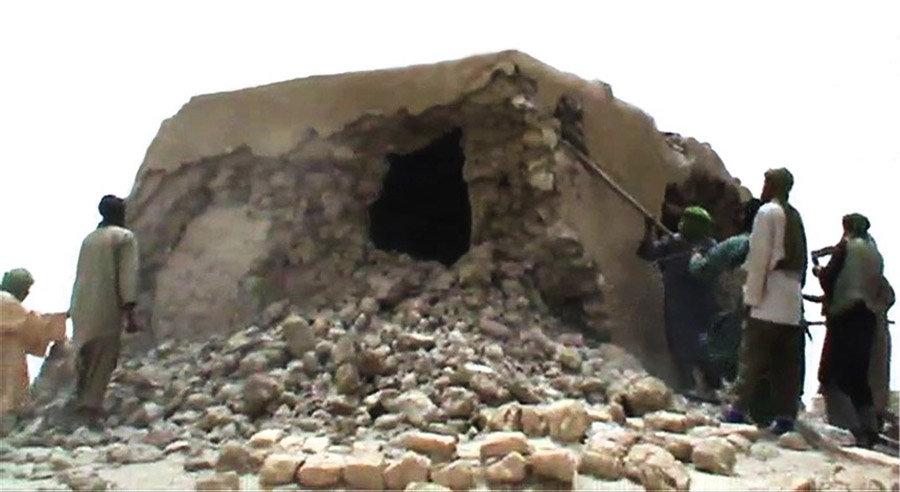
In addition to this requirement, for a plea agreement to be valid, the court must also make sure that the accused understands the nature of the charge against them and the consequences of an admission of guilt; that they have made an admission of guilt voluntarily, after sufficient consultation with the defence counsel; that the accused has waived their rights – among which is the right to plead not guilty and require the prosecution to prove the charges beyond reasonable doubt at a full trial, the right to raise defences and grounds for excluding criminal responsibility, and the right to examine witnesses against them and to obtain the examination of witnesses on their behalf at a full trial – and that the accused has accepted their individual criminal responsibility for the charge, including all modes of liability alleged. The examination of this condition is imperative to ensure that the accused unequivocally understands the nature and consequences of the plea agreement. For example, if after admitting their guilt, the accused persistently brings in defences – as Drazen Erdemovic8 did – then the court has to dismiss the agreement.
A plea agreement has many advantages, not only for the accused themselves, as it can be considered as a mitigating circumstance, as stated in the Al Mahdi case – even though the ICTR clearly held in Kambanda’s case that the court was not bound by any agreement reached by the parties and that it was not obliged to consider the agreement as a mitigating circumstance. In the case of Al Mahdi, the ICC first noted that a plea agreement showed that the accused had remorse and took responsibility for his acts, and showed honest repentance. According to the court, this admission of guilt may also further peace and reconciliation in northern Mali by alleviating victims’ moral suffering through acknowledgement of the significance of the destruction. Last, such an admission may have a deterrent effect on others tempted to commit similar acts in Mali and elsewhere. While it may be agreed that an admission of guilt might help the court speed up the proceedings, and shows the genuine repentance of the accused, it may be difficult to agree with the court on the last two advantages. Can a single judgment have an impact on global peace in a country? Can a mere plea agreement by a mid-ranking leader have any deterrent effect on potential criminals in Mali? Without presuming it has these wide powers, a plea agreement may, at best, only have an impact when determining the specific sentence.
Factors Considered in the Determination of the Sentence
Usually, when it comes to determining the sentence of an accused, judges often check whether or not mitigating or aggravating circumstances exist. In addition to these circumstances, the ICC also considers others factors – such as, in casu, the gravity of the crime. The judges begin by expressing clearly that even if inherently grave, crimes against property are generally of lesser gravity than crimes against persons. Despite this, the court noted a number of factors that raised the gravity Al Mahdi’s particular crime. First was the impact of the attack on the population – heightened by the facts that the attack was relayed in the media and that Timbuktu is an emblematic city with a mythical dimension, and which played a crucial role in the expansion of Islam in the region. Indeed, Timbuktu is at the heart of Mali’s cultural heritage. Its manuscripts and mausoleums of saints, which were destroyed by the groups to which Al Mahdi belonged, were of great importance to the people of that city. They reflected the people’s commitment to Islam and played a psychological role – to the extent that people perceived they had religious protection, due to the objects being present in Timbuktu. The mausoleums were among the most cherished buildings of the city; places of prayer and pilgrimage. Therefore, in fine, the seriousness of the crime was also heightened by the fact that these sites were not only religious sites, but also had symbolic and emotional value for the people of Timbuktu.
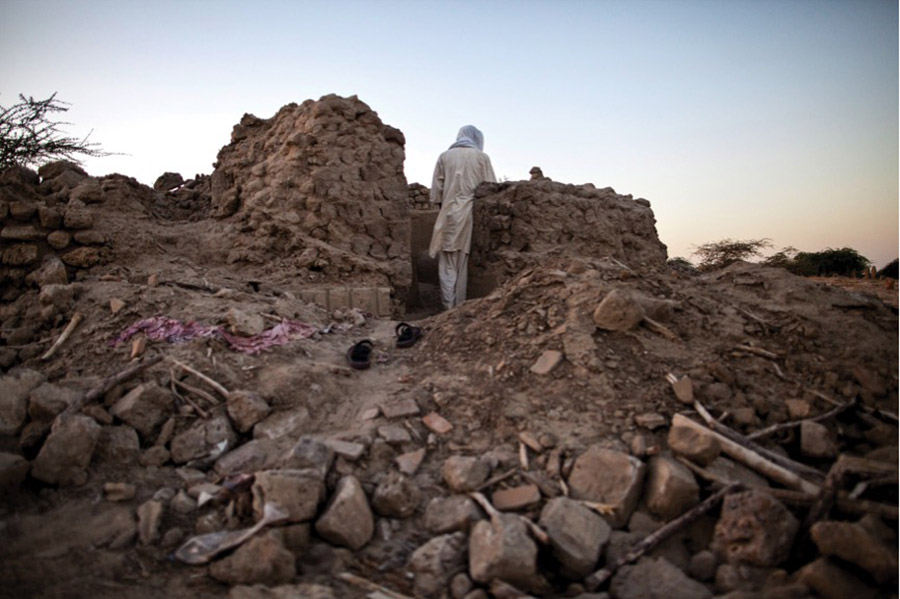
destroyed by radical Islamists during their seizure of the North in early 2012. (UN PHOTO/MARCO DORMINO)
According to the judges, another factor that rendered the attacks on the mausoleums to be of particular gravity was that some of these sites were UNESCO World Heritage sites. As such, their destruction not only affected the direct victims of the crimes – the faithful, and inhabitants of Timbuktu – but also people throughout Mali and the international community. Doubts can be raised on these grounds, since it may have been very difficult for the judges to establish objectively how the so-called international community has been affected, and to what extent. Concerning the pain caused to the people of Mali, and especially Timbuktu, a witness testified before the court that the destruction of the mausoleums was a war activity aimed at breaking the soul of the people of Timbuktu. Another witness brought incredible evidence, attempting to prove “how the entire international community, in the belief that heritage is part of cultural life, is suffering as a result of the destruction of the protected sites”.9 Last, to assess the gravity of the crime further, the court noted that the crime was committed for religious motives, and that such discriminatory religious motives undoubtedly increased the magnitude of the crime. Having considered the destruction of the mausoleums as a crime of significant gravity, the court had to determine whether there were aggravating or mitigating circumstances. The court made it clear that all the factors already taken into consideration in assessing the gravity of the crime should no longer be referred to as aggravating circumstances. In addition, the judges found that the mere fact that the accused committed the crime in a position of authority does not constitute an aggravating circumstance per se. This position departs from the position of the ICTR in the case of Vincent Rutaganira,10 where the tribunal found that the fact that the accused occupied a leading position at the time the crimes were committed should be considered as an aggravating circumstance. Also, according to the judges, the fact that Al Mahdiorganised the logistics for the attacks, participated in the attacks and justified their necessity is not an aggravating circumstance.
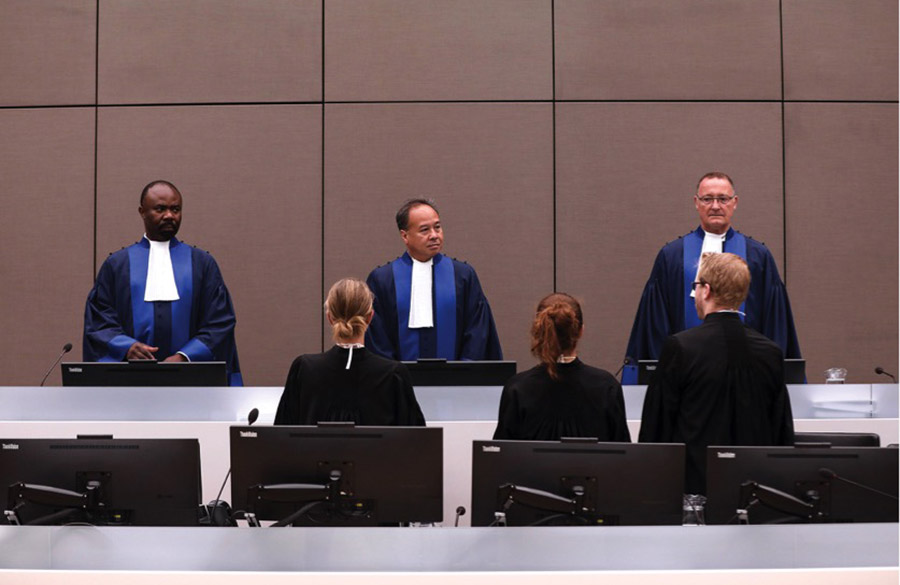
destroying Timbuktu’s shrines. Mahdi was sentenced to nine years in jail (27 September 2016). (GALLO IMAGES/AFP/BAS CZERWINSKI)
The court found many mitigating circumstances that could impact on Al Mahdi’s sentence. The first, as already noted, was that he cooperated with the prosecution and quickly reached an agreement admitting his guilt. The court saw this as a mitigating circumstance, to which substantial weight must be given. Apart from this, the judges also found that, with regard to Al Mahdi’s conduct, his initial reluctance to commit the crime and the means he used to commit them were two further mitigating circumstances. The first circumstance is questionable, as it means that if someone is first reluctant to commit a crime and later on changes their mind and commits it, their sentence should be lessened. It should be remembered that Jean Paul Akayesu11 initially did not participate in the Rwandan genocide, but later did so and was punished accordingly by the ICTR. Despite this, the ICC held that Al Mahdi’s reluctance was of some relevance for the determination of his sentence. On the second circumstance, the court surprisingly held that since Al Mahdi advised against using a bulldozer at all but one of the sites, this was a mitigating circumstance, since it prevented damage to the graves next to the mausoleums. The judges also put forward as a mitigating circumstance the fact that Al Mahdi made sure that the attackers showed respect for the constructions next to the mausoleum while carrying out the attack.
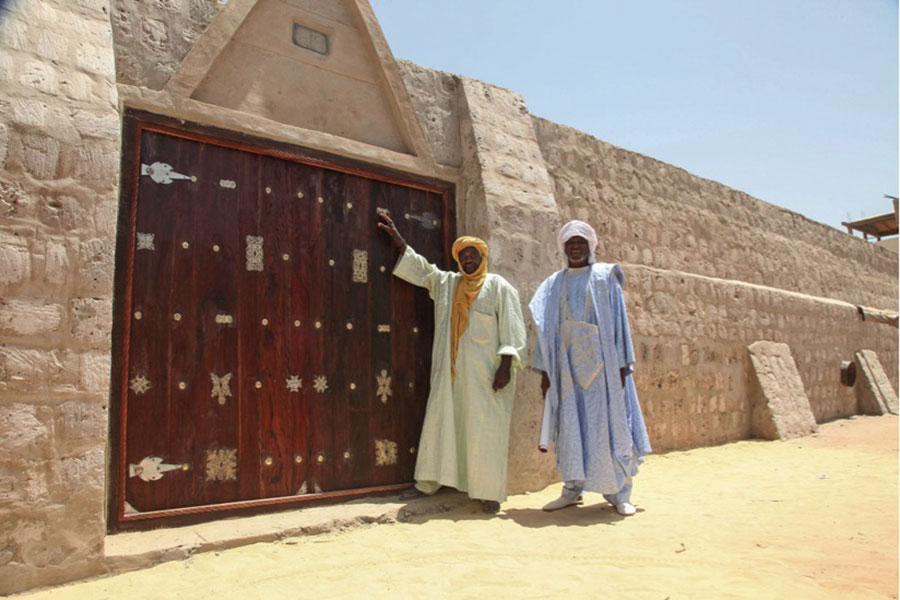
Furthermore, the court congratulated Al Mahdi’s cooperation with the prosecution on two grounds. First, it enabled the prosecution to corroborate, clarify and specify information it already had in its possession; and second, this cooperation was made despite Al Mahdi knowing that his cooperation with the prosecution increased the security profile of his family, meaning that they became less secure. This substantial cooperation was seen as an important factor in the mitigation of the sentence to be imposed. The court also found that the genuine remorse expressed by Al Mahdi for his acts, the empathy he showed for the victims, and the solemn declaration he made never to commit a wrongful act again and the call on other people not to become involved in such acts, were substantial factors in the mitigation of his sentence. However, most of these mitigating circumstances appear too fragile and with less impact on the nature of the crime to be qualified as “substantial factors”.
Even though the Al Mahdi outcome may be presented as a landmark decision in the protection of objects that are not of military value, it is likely that this decision will not be free from criticisms. These criticisms will not only centre on the factors already discussed, but will likely also focus on the holistic nature of prosecutions before the ICC. In this case, Al Mahdi was clearly presented as a mid-ranking commander. Therefore, if the role of the ICC is to prosecute those who bear the highest responsibility in the commission of the gravest crimes, then the question is: what is the court doing to arrest and try those who are clearly identified as leaders of the armed groups that occupied Timbuktu, and who gave unequivocal instructions to Al Mahdi to destroy the sites? If such leaders are not prosecuted, then the court has not completed its work in Mali.
Endnotes
- International Criminal Court (ICC) (2016a) The Prosecutor v. Ahmad Al Faqi Al Mahdi, case N° ICC-01/12-01/15, 27 September.
- In 2012, Mali experienced a coup and a rebellion in the north. The rebellion was leaded by five main Islamist groups: Ansar Dine, Movement for Unity and Jihad in West Africa (MUJAO), Al-Qaeda in the Islamic Maghreb (AQIM), the Signed-in-Blood Battalion and the Islamic Movement for Azawad (IMA). See <http://www.bbc.com/news/world-africa-17582909>
- ICC (2016b) ‘Summary of the Judgment and Sentence in the Case of The Prosecutor v. Ahmad Al Faqi Al Mahdi’, Available at: <www.icc-cpi.int/Pages/search-results.aspx?k=The%20Prosecutor%20v%2E%20Ahmad%20Al%20Faqi%20Al%20Mahdi>, para. 16.
- Thomas Lubanga Dyilo, a Congolese rebel leader, was arrested in 2006 for his participation in a conflict of non-international character that took place in the region of Ituri in the eastern Democratic Republic of the Congo. He was charged with the crime of conscripting and enlisting children under the age of 15 years into an armed force and using them to participate actively in hostilities – a war crime under article 8(2)(b)(xxvi). See ICC (2012) The Prosecutor v. Thomas Lubanga Dyilo, case N° ICC-01/04-01/06, 14 March.
- ICC (2016b) op. cit., para. 57 and 59.
- Jean Kambanda was Rwanda’s prime minister during the 1994 genocide. During his trial at the International Criminal Tribunal for Rwanda (ICTR), he made an admission of guilt and reached a plea agreement with the prosecution, on the expectation that this would constitute a mitigating circumstance in the determination of the sentence. However, this did not have any effect on the sentence, and he appealed. See ICTR (2000) Jean Kambanda v. The Prosecutor, case N° ICTR 97-23-A, 19 October, para. 88.
- ICC (2016b) op. cit., para. 25.
- International Criminal Tribunal for the former Yugoslavia (ICTY) (1997) The Prosecutor v. Erdemovic, case N° IT-96-22-A, 7 October, para. 29. Drazen Erdemovic is a Serbian national who participated in the shooting and killing of hundreds of unarmed Bosnian Muslim men from Srebrenica. The ICTY charged him with murder as a crime against humanity and murder as violations of the laws or customs of war. He pleaded guilty to the count of murder as a crime against humanity, adding that he would have been killed if he had refused to participate in the murders. The Trial Chamber accepted the guilty plea and dismissed the count of murder as violations of the laws and customs of war, and sentenced him to 10 years’ imprisonment. The Appeals Chamber determined that Erdemovic’s plea at his initial appearance had not been informed, and remitted the case to the Trial Chamber so he could re-plead. Erdemovic then changed his plea to guilty on the count of murder as violations of the laws and customs of war, and the prosecutor withdrew the alternative count of murder as a crime against humanity. He was then sentenced to only five years’ imprisonment.
- ICC (2016b) op. cit., para. 39.
- Vincent Rutaganira was a councillor in Rwanda during the genocide. According to the ICTR, this position gave him an obligation to protect the people, and his omission to do so thereby led him to be held responsible for the crimes committed against these people. See ICTR (2005) The Prosecutor v. Vincent Rutaganira, case N° ICTR-95-1C-T, 14 March.
- Jean Paul Akayesu was the mayor of the council of Taba in Rwanda during the genocide. After initially refraining from participating in the genocide, he later actively took part in it. See ICTR (1998) The Prosecutor v. Jean Paul Akayesu, case N° ICTR-96-4-T, 2 September.

